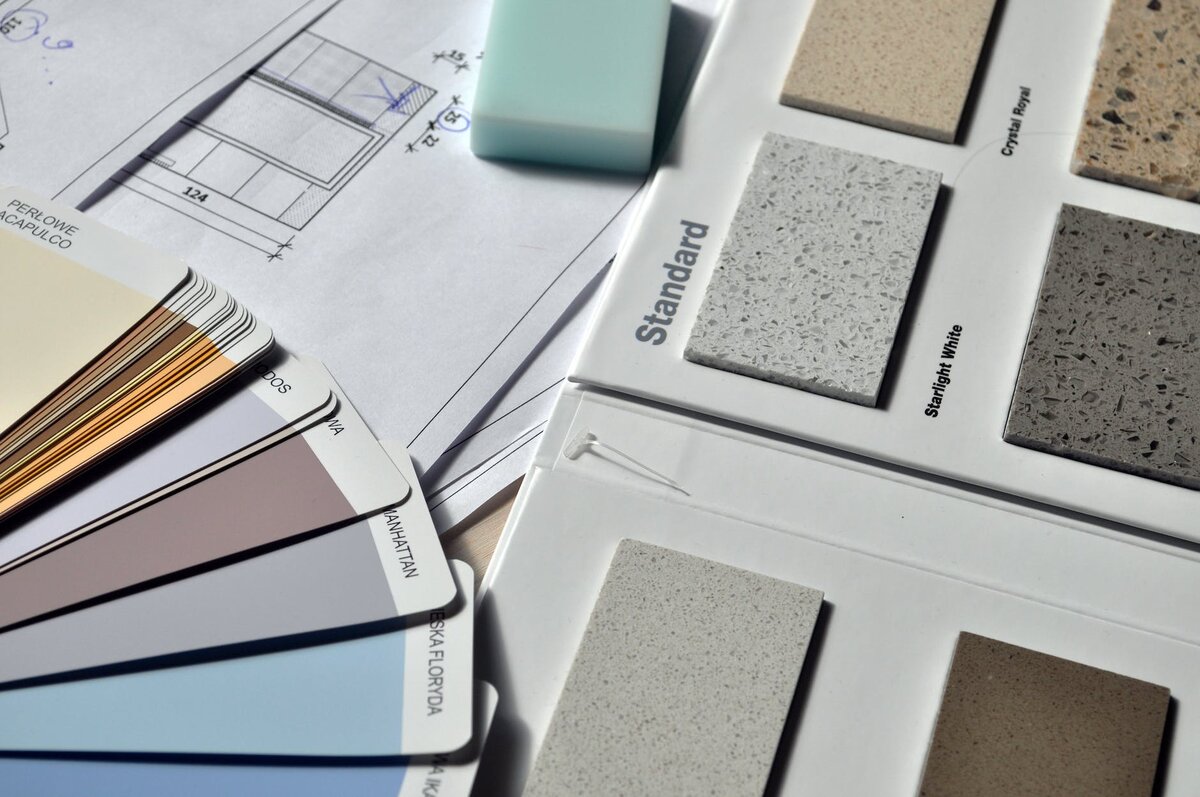How Do Home Renovation Loans Work?
Turning your home into your dream space often requires more than just elbow grease. Renovation loans provide the financial muscle to breathe life into your visions, but navigating loan options can feel overwhelming.
Unfortunately, there isn’t a one-sized fits all when it comes to the best option for a home renovation loan. This guide breaks down the basics of home renovation loans, empowering you to make an informed decision on what renovation loan option makes most sense for you and your financial situation.

Understanding the Basics of Home Renovation Loans:
Home renovation loans are a type of financing specifically designed to cover the costs of home improvement projects. These loans can vary greatly, and each come with its own characteristics and terms:
- Secured vs. Unsecured: Secured loans use your home as collateral, offering lower interest rates but putting your property at risk if you default. Unsecured loans don't require collateral but typically have higher interest rates.
- Fixed vs. Adjustable Rates: Fixed-rate loans offer stable monthly payments throughout the loan term. Adjustable-rate loans (ARMs) initially have lower rates that can fluctuate after an introductory period.
- Loan Amounts: Maximum loan amounts vary depending on the lender, loan type, and your home's value and equity.
Popular Home Renovation Loan Options:
Several loan options cater to different needs and financial situations: See: Guide to Home Renovation Loans with Bad Credit
- FHA 203(k) Loan: Backed by the Federal Housing Administration, this loan finances both home purchase and necessary renovations rolled into one mortgage. Ideal for first-time homebuyers tackling major repairs.
- Home Equity Loan (HELOC): This loan taps into your existing home equity, providing a credit line you can draw on as needed. Flexible but comes with risks, as you're borrowing against your home's value.
- Cash-Out Refinance: You refinance your existing mortgage for a higher amount, pocketing the difference to fund renovations. Offers lower interest rates than HELOCs but extends your loan term.
- VA Renovation Loan: Available to eligible veterans and active-duty service members, this loan finances both home purchase and renovations up to 100% of the appraised value.
- Personal Loan: An unsecured option suitable for smaller projects. Offers quick access to funds but may have higher interest rates and shorter repayment terms. See: Personal Loans Guide
The Loan Process:
- Shop around: Compare rates, terms, and fees from different lenders to find the best fit.
- Get pre-approved: This gives you an idea of your borrowing power and strengthens your offer when negotiating with contractors.
- Choose a contractor: Get multiple bids and ensure they are licensed and insured. (JG Wentworth can help you find a reputable contractor!)
- Finalize the loan: Provide necessary documentation and close the loan.
- Project Management: Depending on the loan type, funds may be disbursed in draws based on project milestones.
Key Considerations:
- Interest Rates: Compare APRs (Annual Percentage Rates) to get a true picture of loan costs.
- Repayment Terms: Choose a repayment plan that fits your budget and timeline.
- Closing Costs: Factor in origination fees, appraisals, and other upfront charges.
- Homeowners Insurance: Ensure your coverage reflects the increased value after renovations.
Remember:
Renovation loans can be necessary to upgrade your home, but careful planning is crucial. Consider your financial situation, project scope, and risk tolerance before diving in. Consulting a financial advisor can provide personalized guidance to navigate the options and make informed decisions for your home renovation.
Featured Articles
What is a Personal Loan?
Personal loans, a popular financial tool, offer individuals access to funds with or without collateral. These loans, provided by banks or online lenders, cater to diverse needs like debt consolidation, home improvements, or unexpected expenses and do not require any collateral. Borrowers receive a lump sum and repay in fixed monthly installments over a specified term, typically ranging from one to seven years. Interest rates, based on creditworthiness, can be fixed or variable, impacting the total repayment amount. While they provide financial flexibility, understanding terms, fees, and the impact on credit is crucial for responsible borrowing and effective financial management.
Do Roofing Companies Offer Financing?
When it comes to home improvement and maintenance, the roof stands as a critical component, safeguarding the structure from the elements. Roofing projects, whether they involve repair or complete replacement, often demand a significant financial undertaking (the average roof replacement cost is $11,500 for an averaged size house). Unfortunately, damaged roofs are something homeowners should replace quickly after they notice the issue, as waiting can cause more serious issues to your home including structural decay and mold.
Do You Need a Permit to Replace Your Home's Windows?
Replacing your home’s old windows can significantly enhance your home’s energy efficiency, aesthetic appeal, and overall comfort. Yet, before you set this plan into motion, a pivotal question looms: Is a permit necessary for replacing your windows?








